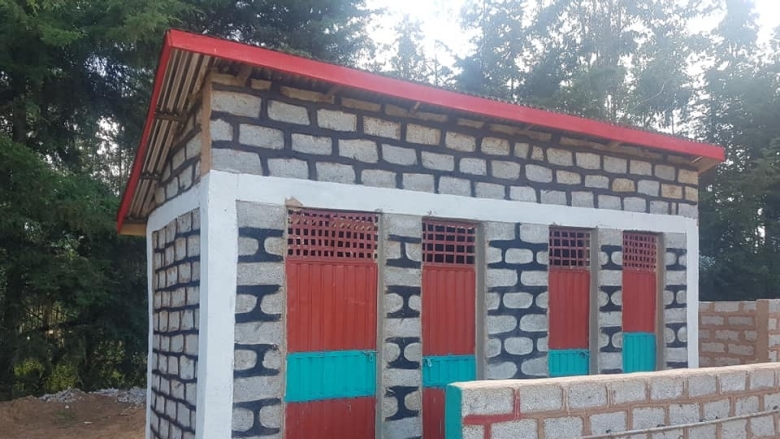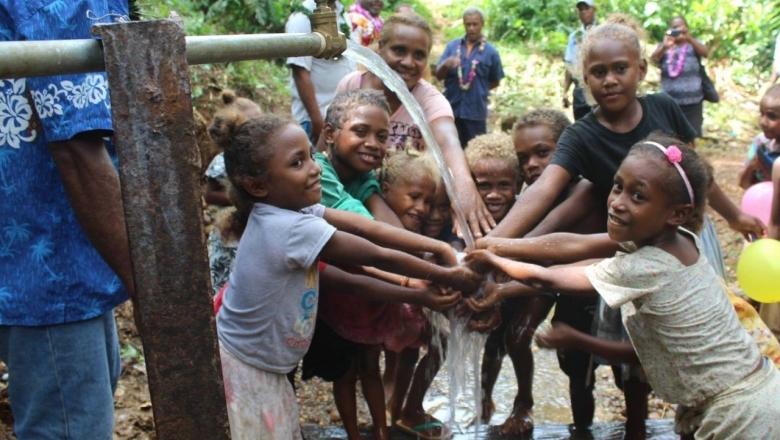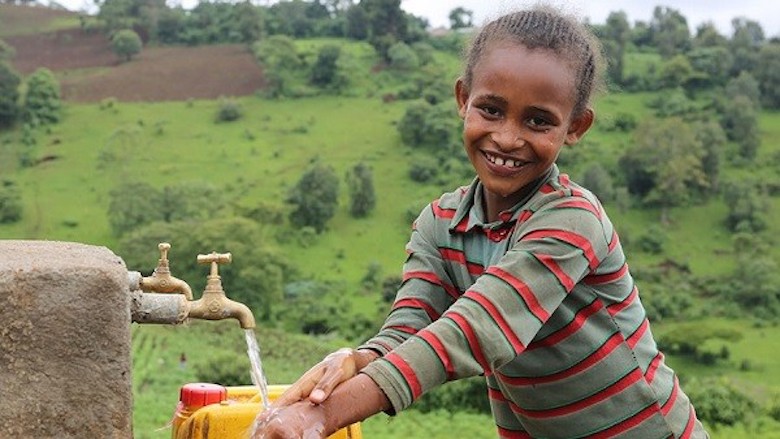Water utilities rarely grab the headlines, but their ability to keep water flowing is among the most important contributions in a pandemic response.
Safe water supply, sanitation and hygiene (WASH) services are a crucial part of preventing disease and protecting human health during infectious disease outbreaks, including the current coronavirus pandemic (COVID-19). Yet these same disease outbreaks place substantial stress on the utilities responsible for delivery.
The staff-intensive nature of utilities makes them particularly susceptible to labor force reductions due to staff illness, physical distancing or quarantine. With budgets already tight, utilities may find themselves constrained even further as affected households struggle to pay for services. And reduced transportation and potentially intensified customs restrictions can disrupt supply chains, leading to shortages of the chemicals and parts that utilities require to continue operating.

That’s why resources from the World Bank’s Second Urban Water Supply and Sanitation Project in Ethiopia have been urgently mobilized to help overcome these challenges and maintain an adequate level of service during the response to the COVID-19 pandemic. This project supports essential water supply and sanitation services for more than 3 million Ethiopians with:
623,000 people in urban areas with access to improved water sources;
61,000 new piped household water connections;
Safe management of excreta for 2.7 million people in urban areas;
More than 50,000 sewer connections in Addis Ababa; and
1,000 public latrines
Under the project, the World Bank is working closely with the Addis Ababa Water and Sewerage Authority (AAWSA) to further increase water supply. Activities include borehole rehabilitation for existing groundwater sources across the city as well as the replacement of 20 water pumps in order to provide safe and reliable services to densely populated areas.
This project is also helping the AAWSA learn from and apply best practices and expertise of water utilities across the world. Some of the lessons so far include the importance of constantly updating emergency planning procedures when events are moving rapidly, identifying vital supplies and ensuring that suppliers can still provide them, and implementing a communications plan that keeps staff, customers and other stakeholders informed of developments.
Outside of Addis Ababa, the project is working with water utilities in 22 of Ethiopia’s largest cities to provide funding and technical support for essential tasks. Procuring chemicals and reagents that remove impurities and maintaining back-up power generators may not be immediately obvious interventions for a pandemic response. But they are, however, extremely important to provide water fit for consumption.
The World Bank is also working with the government to identify additional border cities that need critical support. These cities regularly receive an influx of travelers and goods – most of Ethiopia’s supplies come by land from neighboring countries, which have higher COVID19 caseloads – so these border communities require support and WASH services to mitigate the spread of the virus.
Both AAWSA and secondary city utilities also benefit from the hard work of sanitation workers in small and medium enterprises (SMEs). Ethiopia’s sanitation workforce bridges the gap between sanitation infrastructure and the provision of public services. The World Bank is working with government to mitigate occupational and environmental health risks for these essential members of the response efforts.
The nature of such complex work and the rapidly changing picture of localized outbreaks and resource shortfalls mean that coordination is vital. That’s why the World Bank has established a WASH COVID coordination platform that meets virtually three times a week to help the government, local entities and NGOs work closely together. This mechanism means they all can provide updates as well as coordinate complementary support to ensure the optimal use of resources and timely responses.

The Global Water Security and Sanitation Partnership (GWSP) is supporting Ethiopia as a priority country, where some of its most innovative interventions and approaches are tested, refined and scaled-up. GWSP has enabled the project to conduct rapid sanitation assessments for all of the cities supported to identify a pipeline of sanitation investments tailored to each city’s needs. In addition, GWSP support is helping cities develop business plans and strategies to improve operational efficiency and reduce the losses from water leaks, services not being invoiced to customers, or both.
GWSP has also supported field-level leadership trainings in partnership with the Vitens Water Worx Project, a collective of public water operators, along with international study exchanges to help embed best practice into implementation.
In parallel, the recently approved COVID-19 Emergency Response and Health Systems Preparedness Project is supporting communications and information outreach activities to encourage behavioral change around handwashing and sanitation. The One WASH—Consolidated Water Supply, Sanitation, and Hygiene Account Project is also funding the dissemination of hygiene promotion and behavior change materials. The business community are playing their part too – handwashing stations are now positioned at the entrance to many banks so that customers can maintain good hygiene habits.
Helping water utilities deliver clean and reliable water, providing sanitation to those who need it most, and promoting handwashing behavior change – these are actions that can help protect people in the short term and help prevent outbreaks in the years to come.


